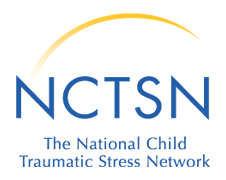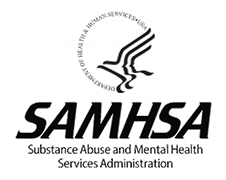About Trauma
Raising the Standard of Care
Family and Children’s Services is a proud member of the National Child Traumatic Stress Network (NCTSN), which was created by Congress in 2000 as part of the Children’s Health Act to raise the standard of care and increase access to services for children and families who experience or witness traumatic events.
This unique network of frontline providers, family members, researchers, and national partners is committed to changing the course of children’s lives by improving their care and moving scientific gains quickly into practice across the U.S. The NCTSN is administered by the Substance Abuse and Mental Health Services Administration (SAMHSA) and coordinated by the UCLA-Duke University National Center for Child Traumatic Stress (NCCTS).

What is Child Trauma?
A traumatic event is a frightening, dangerous, or violent event that poses a threat to a child’s life or bodily integrity. Witnessing a traumatic event that threatens life or physical security of a loved one can also be traumatic. This is particularly important for young children as their sense of safety depends on the perceived safety of their attachment figures.
Traumatic experiences can initiate strong emotions and physical reactions that can persist long after the event. Children may feel terror, helplessness, or fear, as well as physiological reactions such as heart pounding, vomiting, or loss of bowel or bladder control. Children who experience an inability to protect themselves or who lacked protection from others to avoid the consequences of the traumatic experience may also feel overwhelmed by the intensity of physical and emotional responses.
Even though adults work hard to keep children safe, dangerous events still happen. This danger can come from outside of the family (such as a natural disaster, car accident, school shooting, or community violence) or from within the family, such as domestic violence, physical or sexual abuse, or the unexpected death of a loved one.
Evidence-based trauma therapy has been proven to help children cope with symptoms of traumatic stress. When seeking therapy for a child who has experienced a traumatic event, ask if the therapist has received training in an evidence-based therapy, such as Trauma-Focused Cognitive Behavioral Therapy, TARGET (Trauma Affect Regulation Guide for Education and Therapy), or ARC (Attachment, Regulation and Competency).
Source: National Child Traumatic Stress Network
Trauma-Informed Care
Trauma-Informed Care (TIC) is an approach in the human service field that assumes that an individual is more likely than not to have a history of trauma. Trauma-Informed Care recognizes the presence of trauma symptoms and acknowledges the role trauma may play in an individual’s life- including service staff.
On an organizational or systemic level, Trauma-Informed Care changes organizational culture to emphasize respecting and appropriately responding to the effects of trauma at all levels.[1][2] Similar to the change in general protocol regarding universal precautions, Trauma-Informed Care practice and awareness becomes almost second nature and pervasive in all service responses. Trauma-Informed Care requires a system to make a paradigm shift from asking, “What is wrong with this person?” to “What has happened to this person?”[3]
The intention of Trauma-Informed Care is not to treat symptoms or issues related to sexual, physical or emotional abuse or any other form of trauma but rather to provide support services in a way that is accessible and appropriate to those who may have experienced trauma.[3] When service systems operating procedures do not use a trauma-informed approach, the possibility for triggering or exacerbating trauma symptoms and re-traumatizing individuals increases.[3]
To learn more about trauma and how it affects children and adults, click below:
For more information on any of these programs, and to learn more about how you can help, contact us.
Main Office
40 North Avenue
Elizabeth, NJ 07208
Ph: 908-352-7474
Fax: 908-965-3227
info@facsnj.org
Midtown Elizabeth Office
70 West Grand Street
Elizabeth, NJ 07202
Ph: 908-372-1007
Fax: 908-372-1018
info@facsnj.org


